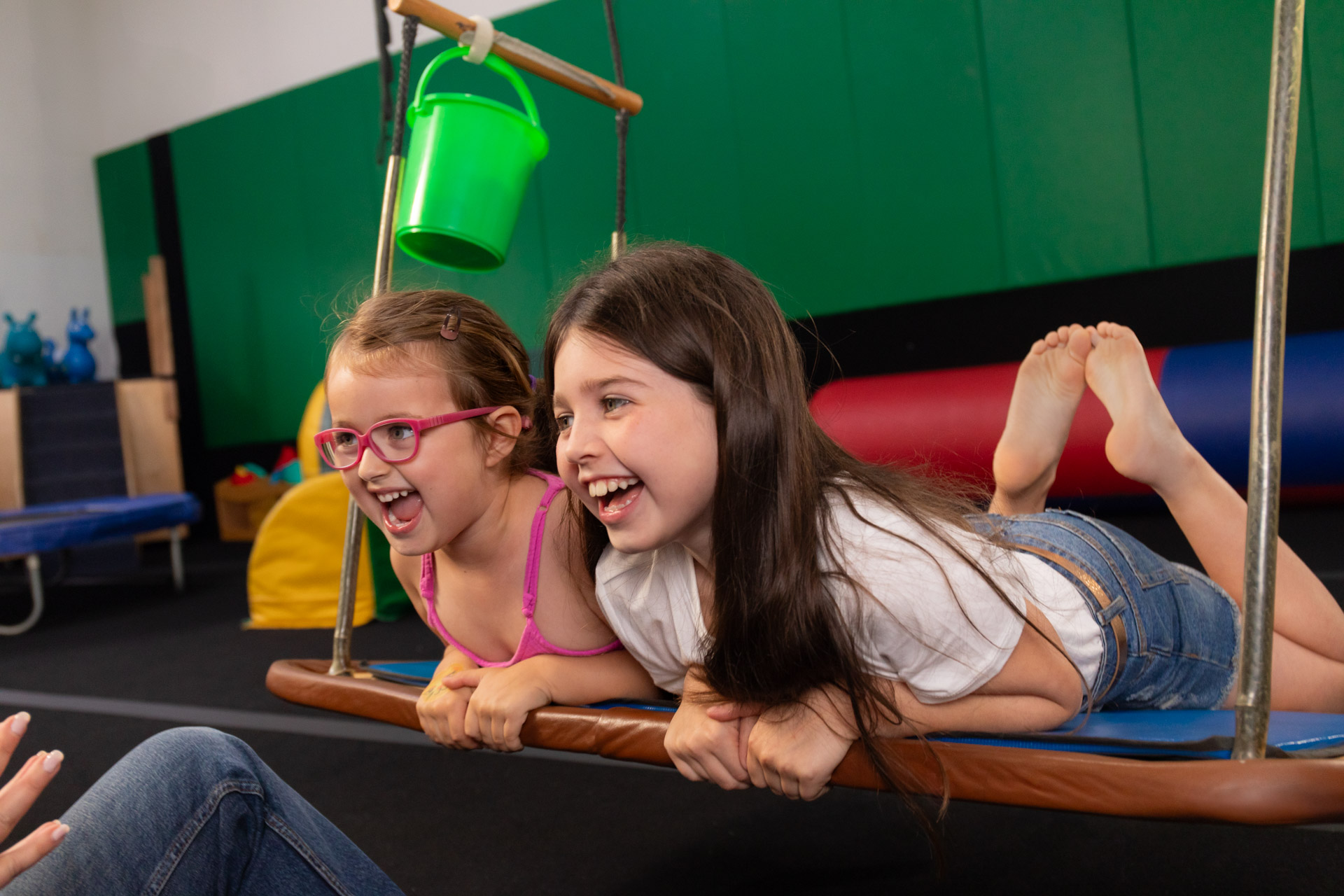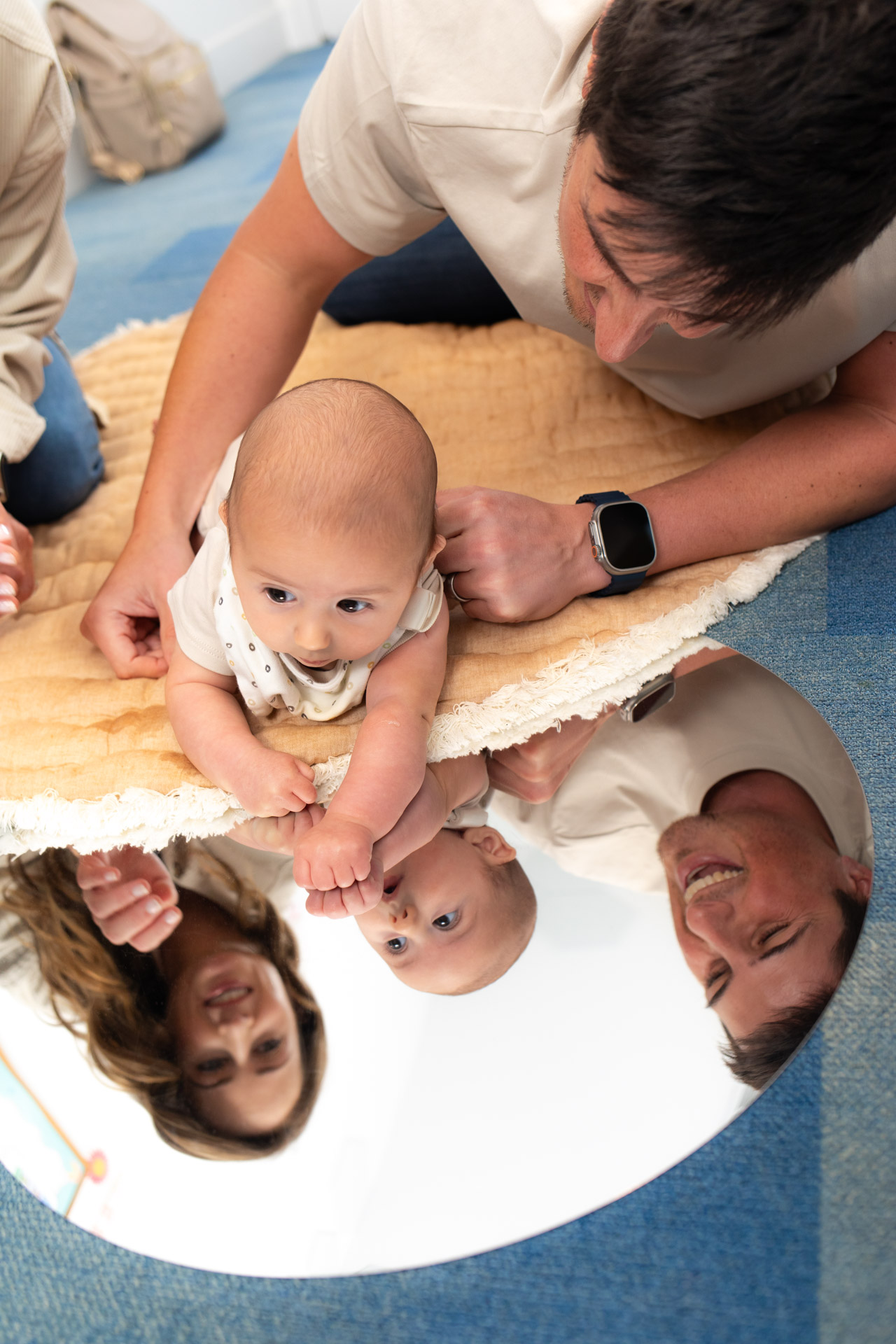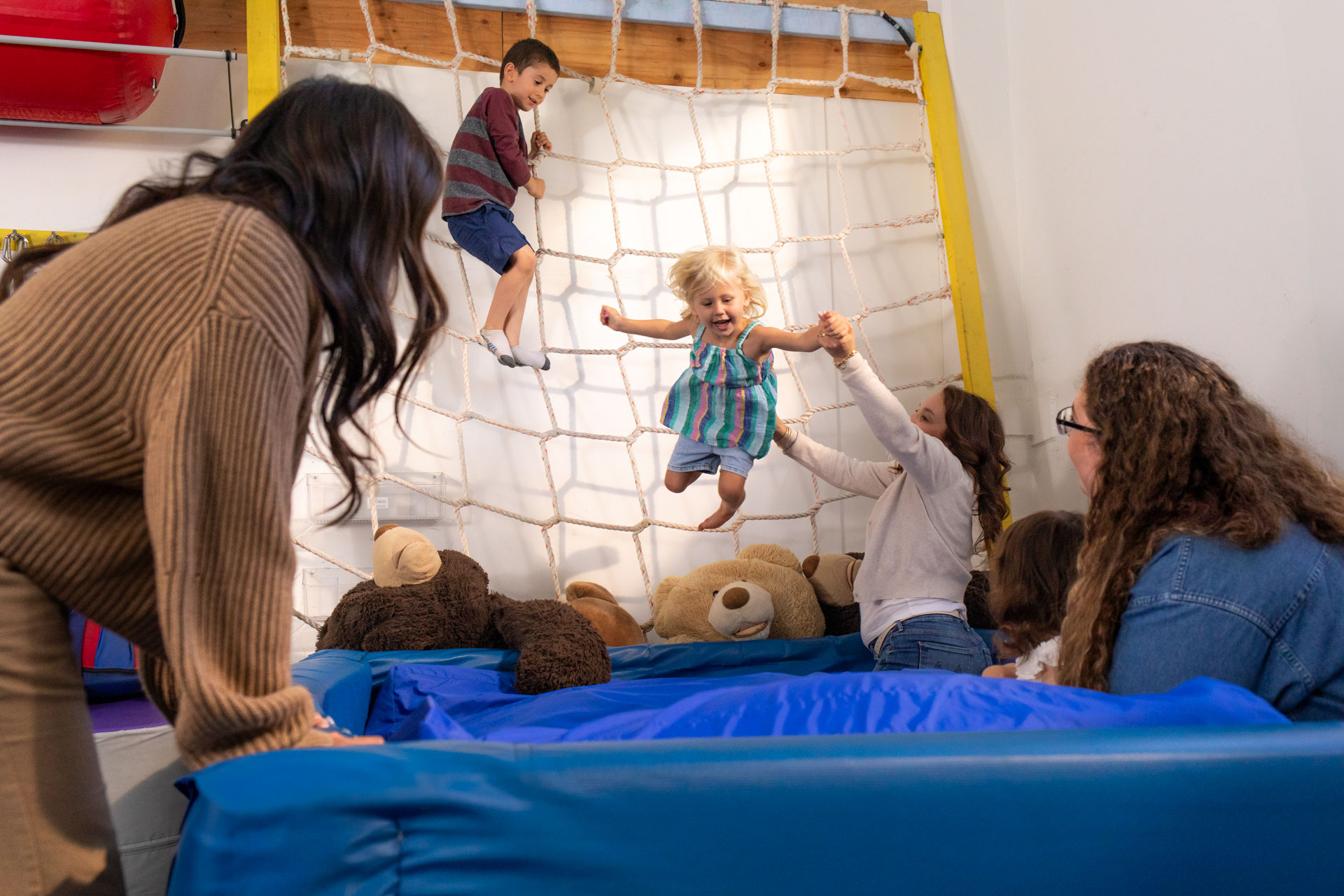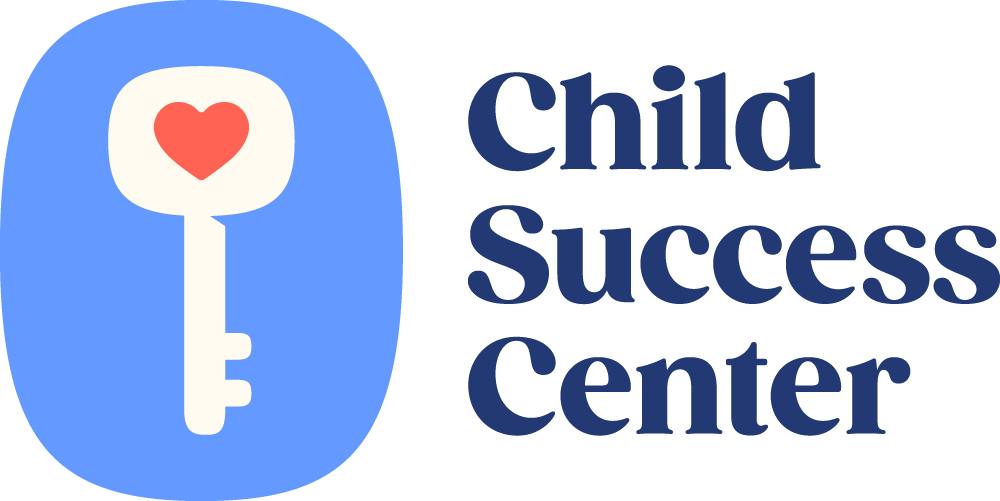Occupational Therapy Services Diagnostic Resources
Autism Spectrum Disorder and Occupational Therapy

At Child Success Center, our expert occupational therapists employ a comprehensive approach to support your child's development. We combine advanced training in sensory processing with innovative educational models, including the SCERTS Program (Social Communication, Emotional Regulation, and Transactional Support), Social Thinking, and Stanley Greenspan's DIR Floortime approach. This unique blend allows us to uncover the root causes of challenging behaviors while fostering positive, joyful relationships that enhance your child's motivation and skills to engage, communicate, play, and learn.
Our cross-functional team collaborates with our behavioral and speech therapists to provide a child-centered approach. We begin with a comprehensive assessment, develop tailored treatment plans, and offer direct services, consultation, and case management. Support is provided both onsite at your child's school and in our clinic, ensuring a consistent and comprehensive system. By educating all members of your child's extended team on strategies, modifications, and environmental adaptations, we promote emotional regulation and social communication across all settings. This holistic approach is particularly beneficial for children with Autism Spectrum Disorder, helping them become confident social communicators while reducing behaviors that may interfere with learning and relationship development.
Attention Deficit Hyperactivity Disorder (ADHD)

Our comprehensive therapy services for children with ADHD focus on improving essential skills for their daily functioning and overall development. Our occupational therapists help children with:
- Organization and planning
- Self-regulation
- Independence in everyday tasks
- Sensory-motor abilities (like handwriting)
- Attention and working memory
- Executive function skills
To achieve these goals, we incorporate evidence-based curricula such as The Zones of Regulation® Digital Curriculum and The Social Thinking Methodology.
The Zones of Regulation curriculum teaches children how to regulate their emotions and behavior. Once children can maintain attention and a regulated state, we introduce the Social Thinking curriculum to promote positive outcomes in classroom and community group environments. Social Thinking®, created by Michelle Garcia Winner, comprises social thinking vocabulary, concepts, strategies, and age-appropriate curricula.
Recognizing that ADHD often coexists with learning challenges, our educational therapists play a crucial role in our integrated approach. They provide support and advocacy in the classroom setting, as well as direct therapy to bolster executive function, reading, and writing skills. This additional layer of support helps address the complex needs of children with ADHD in educational environments.
Our team of occupational therapists, speech therapists, educational therapists, and Friendship Club leaders uses consistent language and collaborates with each child's support network to build focus and attention skills. This approach aims to build positive self-esteem, equip children with the necessary skills to navigate daily life effectively, and mitigate negative social-emotional outcomes often associated with ADHD.
By combining these elements, we strive to provide comprehensive support for children with ADHD, helping them develop crucial skills and strategies for success in various aspects of their lives. Our goal is to create a supportive environment where children can:
- Learn to regulate their emotions
- Improve their social thinking and academic skills
- Build the confidence they need to thrive
While we use the Social Thinking Methodology, our program, including its teachers or leaders, is not affiliated with, nor has it been reviewed, approved, or endorsed by Michelle Garcia Winner and Think Social Publishing.
We incorporate evidence-based curricula such as The Zones of Regulation®, Digital Curriculum and The Social Thinking Methodology to support children in developing attention, working memory, and executive function skills.
Gross Motor Delay

Child Success Center specializes in supporting gross motor development from birth through childhood. Our expert occupational therapists, trained in advanced sensory integration practices, guide parents through crucial milestones from 0-12 months, including head control, tummy time, and the transition from sitting to walking.
Recognizing that approximately 15-20% of children may have underlying sensory-motor challenges, we help identify and address issues affecting coordinated movements. These challenges can impact a child's ability to run, jump, climb, throw and catch balls, ride a bicycle, balance, maintain safety awareness, and sit attentively during activities.
Our approach acknowledges the correlation between sensory-motor processing, gross motor skills, attention, and behavior. By understanding each child's unique nervous system, we provide effective support tailored to their needs.
Visual Motor Challenges
Visual Perception
Visual perception is a complex system that allows us to process visual stimuli, identify what we see, and understand the world around us. This crucial ability impacts nearly every aspect of our daily lives, from navigating spaces and recognizing letters, numbers, and shapes to differentiating backgrounds and utilizing visual memory.
- Working in conjunction with the visual-motor system, visual perception plays a vital role in various activities, including:
- Reading and writing
- Ball skills and sports
- Fine motor coordination
- Self-help skills and dressing
- Recreational activities
Our occupational therapists, who have collaborated closely with developmental optometrists for over two decades, are trained to identify underlying visual processing challenges that may affect a child's skills and development. They can help you understand the correlation between visual processing systems and any behavioral, attention, motor, or learning challenges your child may be experiencing.
By recognizing and addressing these issues early, often as early as the preschool years, our therapists provide a form of preventative care, potentially averting future learning difficulties.
If you're concerned that your child is avoiding visual activities, struggling with visual memory (affecting letter and number identification), or having difficulties with tasks such as cutting, catching, throwing a ball, or writing, please don't hesitate to reach out. Our team can provide a comprehensive assessment and tailored intervention strategies to support your child's visual perceptual development and overall success.
Feeding Challenges

Feeding is a complex activity that children engage in from birth, requiring the coordination of sucking, swallowing, and breathing reflexes. At Child Success Center, our team of Speech Language Pathologists (SLPs) and Occupational Therapists (OTs) work collaboratively to address feeding challenges, considering motor, sensory, and structural concerns, as well as emotional readiness.
Our comprehensive approach includes:
- Assessment: We evaluate feeding and swallowing skills, such as a child's ability to drink from a cup or chew various textured items.
- Customized Therapy Plans: We create tailored strategies that may include oral motor exercises, positioning techniques, and sensory tolerance development.
- SOS (Sequential Oral Sensory) Method: This approach aims to expand a child's diet and make eating enjoyable. For sensory-based challenges, we follow a hierarchy of steps involving touching, smelling, and eventually tasting foods, ensuring your child feels comfortable and secure throughout the process.
- Collaborative Care: We work closely with families and external specialists as needed to develop strategies that help children build healthy relationships with food.
- Holistic Approach: Our therapy addresses both sensory-based and function-based feeding issues, considering the whole child in our treatment plans.
By combining the expertise of our on-site SLPs and OTs, we provide comprehensive care that sets the foundation for lifelong nourishment and well-being. Our goal is to make eating an enjoyable experience while expanding your child's diet and improving their overall feeding skills.
Self-Regulation Challenges
Early childhood development, particularly from birth to age three, is a critical period when children's individual processing abilities vary greatly. Self-regulation, the capacity to control impulses and manage emotions, thoughts, actions, and attention, is a key skill that begins to evolve during the preschool years. While it's normal for children to face challenges in this area, some may struggle more than others, especially those with Autism Spectrum Disorder, Anxiety Disorder, or Attention Deficit Hyperactivity Disorder.
At Child Success Center, our occupational therapists collaborate with schools and families to build individualized support systems for children grappling with underlying sensory processing challenges that may interfere with successful self-regulation. We work in both school and clinical settings to help children achieve and maintain a functional regulated state, essential for learning and development. Our team is trained in various models and approaches, including the SCERTS program, Zones of Regulation, Social Thinking Curriculum, Ayres' Sensory Integration, and DIR-Floortime, to support children in developing these crucial skills.
Children struggling with self-regulation often exhibit reduced focus and attention, which can hinder their development of critical pre-handwriting skills needed for success in kindergarten. It's essential to proactively identify when self-regulation challenges prevent a child from capitalizing on key developmental periods for acquiring these abilities. Handwriting, a vital learning skill, is commonly delayed in children with a history of self-regulation difficulties. Our focus is on creating tailored strategies that address each child's unique needs, fostering an environment where they can thrive and reach their full potential.
Sensory Processing Disorder
Sensory processing forms the cornerstone of how we learn and interact with the world, encompassing our ability to register and interpret information through various channels such as vision, hearing, smell, taste, touch, internal body awareness, and movement. This sensory input shapes our understanding of the environment and significantly impacts our attention and participation, either facilitating engagement or causing distraction. At our center, we integrate sensory-rich therapeutic play with evidence-based interventions, drawing on A. Jean Ayres' Sensory Integration theory to help children effectively process and integrate sensory information from their bodies and surroundings.
Efficient sensory integration is vital for a wide array of activities and behaviors, from catching a ball to functioning in a classroom setting or performing self-care tasks. Our specialized therapists address challenges in motor skills, handwriting, and social relationships, recognizing that difficulties in these areas often stem from underlying sensory processing issues. We view sensory integration as a foundational pyramid, where efficient processing provides the essential building blocks for higher-level academics, attention, and social skills. By focusing on mastering these fundamental sensory processing skills, we aim to support children's overall development, helping them overcome challenges in arousal level, social reciprocity, coordination, and engagement in routine tasks.
Social Skills

Social skills development is a lifelong process that begins in early childhood with self-regulation, progresses to social problem-solving, and ultimately leads to competence as a social communicator. Our dynamic team assessment and treatment approach provides a comprehensive understanding of why your child may be struggling to build social relationships. Through a collaborative team treatment approach, we offer individual and small group opportunities such as peer-to-peer speech therapy, Friendship Club, and gross motor play in occupational therapy that mimics a school playground, supporting your child's social growth and helping them thrive in this crucial area of development.
The Social Thinking Curriculum, designed by a speech-language pathologist, is a key component of our approach. It aims to help children and adolescents develop essential social skills and apply them effectively in various situations. The curriculum focuses on four core concepts: social awareness, communication, problem-solving, and self-regulation. These concepts help children recognize and understand thoughts, feelings, and perspectives; communicate clearly; address social challenges constructively; and manage their emotions and behavior. To support children in all these areas, our multidisciplinary team of occupational therapists, speech therapists, and marriage and family therapists at Child Success Center identifies each child's specific skill deficits. We then clinically design a program that focuses on building foundational processing abilities, ensuring continued success in social development.
The curriculum is delivered through structured lessons, including role-playing, discussions, and practical exercises. It incorporates specific Social Thinking strategies to improve how students perceive and engage in social situations. Activities are tailored to meet individual needs and group dynamics, ensuring a well-rounded approach. Importantly, the program involves parents and educators, providing resources to support children's social development at home and in the classroom. By participating in this comprehensive program, students develop strong interpersonal skills, improve their ability to navigate social settings, and build better relationships with peers, supporting not only their academic success but also their overall emotional and social well-being.
Executive Functioning Deficit
Executive function, often described as the brain's "CEO," manages high-level cognitive processes like task prioritization, goal-setting, and impulse control. Children with executive function difficulties may struggle with behavior, self-regulation, social skills, academic performance, and attention, often manifesting as poor self-esteem, social challenges, and organizational issues.
At Child Success Center, our occupational therapists work collaboratively with behavioral and speech therapists to support executive function development. They assess the root causes of behavioral and cognitive challenges, considering how sensory-motor and language processing systems impact these skills. This holistic approach focuses on regulation, joint attention, engagement, and reciprocal shared play.
Our therapists utilize various approaches, including the Alert Program, Zones of Regulation, Social Thinking, Floortime, and the SCERTS program. They recognize that behavior often results from external challenges and adapt interventions accordingly. By emphasizing executive function skill-building in the early preschool years, we aim to prevent future challenges in school, at home, and in life.
Dyspraxia
Dyslexia (reading) vs Dysgraphia (handwriting)
Dyslexia and dysgraphia are distinct learning disabilities that affect different aspects of language and motor skills.
- Dyslexia is a neurodevelopmental disorder primarily impacting reading and language processing, manifesting in difficulties with word recognition, spelling, and reading comprehension.
- Dysgraphia specifically impairs a child's writing abilities, affecting handwriting, spelling, and the organization of thoughts on paper.
Despite their differences, both conditions can significantly impact a child's academic performance and self-esteem. Our specialized team of speech, educational, and occupational therapists collaborate to create tailored interventions for both dyslexia and dysgraphia. We employ a multisensory approach to learning that supports both motor and language processing skills, focusing on remediating reading and writing challenges while boosting the child's confidence and overall academic success.
Developmental Coordination Disorder (DCD)
Torticollis and Plagiocephaly
Tummy Time, where babies spend supervised time on their stomachs while awake, is crucial for preventing and addressing two common infant conditions: torticollis and plagiocephaly. Torticollis is a condition where an infant has a strong head preference to one side, often due to tight neck muscles. Plagiocephaly, or flat head syndrome, affects a startling 46.6% of babies in our back-sleeping culture. Recent studies have shown that all babies are at risk of head flattening, especially when they stay in positions where their head is turned to a preferred side for elongated periods. This risk is heightened when babies don't have opportunities to work out natural soft tissue neck contractures and gestational constraint patterns. Tummy Time is essential in combating these issues as it promotes head control, strengthens neck muscles, and encourages babies to turn their heads in both directions. Regular Tummy Time sessions can help prevent the development of flat spots on the back of the head and assist in stretching and strengthening neck muscles affected by torticollis. For babies already experiencing these conditions, Tummy Time can be more challenging but is even more critical for their development and recovery. Our occupational therapists are trained to coach you through this often challenging time to support motor development and regulation.
